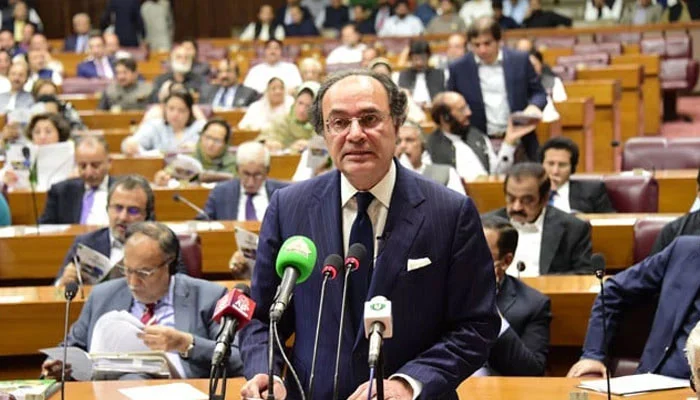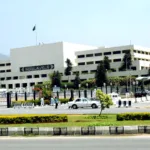Finance Minister Senator Muhammad Aurangzeb on Friday underlined that Pakistan is entering a new phase of stability and reform, with foreign partners—particularly Saudi Arabia—playing a key role in supporting investment and growth.
Virtually addressing a business session organized for the visiting Saudi business delegation at the Overseas Investors Chamber of Commerce & Industry (OICCI) in Karachi, co-hosted by the Pakistan Business Council (PBC), Aurangzeb stressed that the government’s priority is to provide an enabling ecosystem while the private sector drives economic expansion.
He recalled meeting Prince Mansour and members of the Saudi delegation at a luncheon hosted earlier by the Prime Minister, calling Saudi Arabia’s Vision 2030 a model of execution from which Pakistan seeks to learn. The minister described the Federal Cabinet’s recent approval of a historic Security Pact as a milestone in deepening ties with the Kingdom.
On the economic front, Aurangzeb said Pakistan has regained macroeconomic stability, with all three major global rating agencies now aligned after several years. He highlighted that the successful repayment of a US$500 million Eurobond on September 30 demonstrated financial credibility, while stable financing rates, adequate reserves, and a steady foreign exchange regime had made capital and brackly news repatriation routine instead of problematic.
Turning to reforms, he explained that structural changes in taxation and the energy sector are being advanced through dialogue with the private sector, with OICCI and PBC providing valuable input. He added that Prime Minister-led initiatives on taxation reforms and digital transformation aim to expand Pakistan’s $411 billion recorded economy, half of which remains undocumented, bringing the real size close to $1 trillion.
Aurangzeb also confirmed that engagement with the International Monetary Fund (IMF) remains constructive, with only a few issues outstanding, and expressed optimism about finalizing a staff-level agreement during his upcoming Washington meetings alongside the IMF and World Bank annual sessions.
Acknowledging the challenges posed by recent floods, the minister said rapid damage assessments are underway and stressed that domestic resources will be prioritized for relief and recovery before seeking external support.
Concluding his remarks, he noted that Pakistan benefits from a unique alignment of favorable macroeconomic trends and positive geopolitical tailwinds, with strategic partners such as Saudi Arabia, China, and the United States engaging on trade and investment, making the Saudi delegation’s visit both timely and critical for opening new avenues of cooperation.
Discover more from Brackly News
Subscribe to get the latest posts sent to your email.



